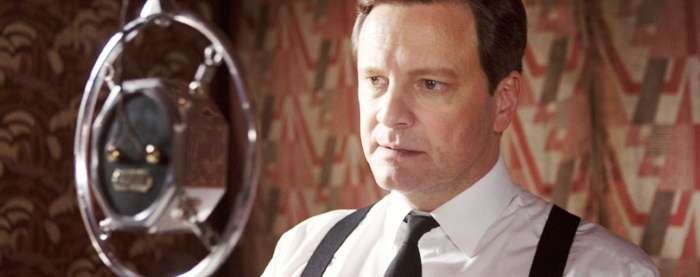We learn to speak smart words. Basics of correct beautiful speech
Most Popular Mistakes
They are forgivable in everyday speech, but make you a boring interlocutor. Before you learn how to speak correctly, pay attention to your everyday speech.
Maybe they increase the duration of any speech, but make it inexpressive: “I don’t know”, “this is the same”, “in general” will only bore the listener, while visual speech is perceived and remembered better. This also includes the repetition of the same thought. different words several times in a row in one conversation. Maybe this will increase the length of the monologue, but it is unlikely to make it interesting.
In order to, you can record speech on a voice recorder or smartphone, and then listen and analyze it. You can also ask a friend or colleague to keep track of the garbage in your speech and turn on an unpleasant sound on the phone when he hears something not too beautiful. In addition, you can write down everything you want to say somewhere on paper and think about how you can make it all shorter and remove unnecessary things and how to make the conversation more powerful and imaginative.
2.Fast speech
Sometimes we "accelerate" simply under the influence of feelings. But in this case, the information simply will not reach the listener. Again, you can record on a tape recorder, and before you start to say something, take a deep breath and imagine that the listener is interested in your conversation.
3. Disagreement
Starting your speech with a particle “not” is ridiculous. It is also absurd to enter into arguments in order to prove one's status. This is difficult, but if you disagree with something or hear a ridiculous statement from the interlocutor, try to understand why the person thinks so, and do not go on the attack right away. If there is a desire to argue, you can simply change the topic or move your conversation to another area.
4. Stepped speech
This refers to speech with many accents and short pauses. If you mix words and syllables, the phrase will be perceived by ear much easier.

How to learn to speak beautifully and competently
Mistakes are only the beginning of work on speech. Further it will be more interesting.Learning to build sentences correctly
If this does not work out yet, you can write everything down on a piece of paper, even just interesting words and thoughts that arose just like that. Also in the competent construction of sentences
A diary or blog would be great. Over time, the ability to write beautifully will grow into the ability to speak beautifully.
Sign up for rhetoric courses
Courses are a great helper in how to learn to speak beautifully. It's a whole art. The courses will teach not only the theory of beautiful speech, but also practice.
We increase vocabulary
When you hear a word you don't know, be sure to write it down and then google it. You can also specifically look for difficult books, especially scientific ones. All this will help you to keep up a conversation with any person.
We read more
Not only classical literature, but also good periodicals, as well as blogs of those writers and politicians whom you respect and appreciate. This will teach you how to build sentences correctly, give direction to thoughts and allow you to dress them in the right words. Moreover, even modern literature will help change the train of thought and increase the vocabulary.
Learning to speak on any topic
- Again, both modern and from the category of “eternal values” will help with this. At first, you can even make a list of interesting topics and imagine how and where you will talk on them.
- And you can also play with your family here in what game. Each family member chooses one item, and any, from a bun to a tablet computer. Everything is put into a bag and lots are drawn one by one. Your task is to talk beautifully and coherently about the chosen subject for five to ten minutes. At first it seems difficult, but then everything becomes a habit.
- Highlight key points. Few people are interested in how you or your son negotiated the purchase of a car, and then went from one car to another. Be brief, but don't miss out on interesting details.
- Work on your confidence. Any speech, even truthful and necessary, will look gray and crumpled if you speak uncertainly. The reason is precisely in the excitement, which will not allow you to clearly convey everything that you wanted. So you can sign up for another training. It's also important to believe everything you say.
- Work on articulation, facial expressions and gestures. You can study in front of a mirror, or you can record your performances on video and watch from the side. Even if something seems ridiculous, don't stop. Pay attention to your posture. For greater confidence, you can be like an amateur theater or training.
- Learning to speak in public. Before the first performance, write down everything, think over all your remarks. It's better to make a presentation a week in advance, and then review it a couple of days before the key moment and pay attention to weaknesses that were not noticed before. Read the speech in front of loved ones and think together about the questions that you may have to answer after the speech and prepare answers to them in advance.
Just tips...
- Many people who speak publicly all the time, such as teachers, may lose their voice over time. To prevent this from happening, do breathing exercises and yoga, and in between, just say the Om mantra, which clears the breath and throat. The main thing is that no one hears.
- To work with the voice, you can do this exercise. We lie down on the floor, put a heavy book on the diaphragm and read poetry. So the voice will cease to be sharp, and over time it will become deeper and more expressive. You can also speak tongue twisters.
- When speaking, look at the person in the back row. A popular theatrical technique, but it will make you look and sound more impressive when you speak.
Competent speech is a guarantee life success. After all, they are judged not only by clothes, but also by the ability to correctly convey thoughts and write correctly. A person who knows how to express his thoughts simply, concisely and clearly, correctly build sentences, is always perceived more positively. Interlocutors, listening to competent speech, automatically assign a completely different, higher level of life competence to a person.
Have you ever lost or didn't get a job because of too many mistakes in a letter or the need to clearly explain why you are the right person for the job? The development of competent speech is one of the basic tasks of every self-respecting person. Even if you are not performing in front of an audience, the ability to speak beautifully and clearly is appreciated by everyone. So, how to develop literate speech?
Read fiction
Reading quality fiction can hardly be called a waste of time. AT modern world we are exposed to a very large flow of information, mostly listening to the news or reading it on the Internet. But the web, entertainment reading and business literature cannot replace good books recognized domestic and foreign authors.
Reading novels helps to intuitively make correct, beautiful sentences, develops a sense of language. Reading fiction, scientific articles in special editions, a person expands his horizons and vocabulary. If you want to make speech more lively, figurative - read poetry. Select for yourself the rhythm, metaphors and turns of speech that you would like to use.
Use Dictionaries
Look for new words. If you have heard or read a word whose meaning is unfamiliar to you, feel free to take a dictionary and find out what it means. The origin of words is a very interesting science. What if it becomes one of your hobbies?

In addition to the usual dictionary, there are dictionaries of metaphors, foreign words, special terms, even dictionaries dedicated to a particular science. Use everyone - and your vocabulary will grow rapidly. You can always find the most accurate word and apply it in a conversation.
Play educational games
As you know, children receive almost all the knowledge about the language until the age of seven. Literate speech in a child develops with the help of the people around him. There are also many games and techniques that allow you to develop your imagination, expand your vocabulary and learn how to speak beautifully.
If possible, listen to yourself from the outside. Make an audio or video recording of your voice. If you are afraid to speak into the recorder or get an inaccurate result, ask someone close to record you during a normal conversation.
Assess your speech. Competent speech is always clean from everything superfluous. How accurately did you communicate your message to others? Was she understandable? Could it have been shorter, clearer, clearer? Are you pausing where you shouldn't? Are you building sentences correctly? Do your thoughts get confused, do you jump from thought to thought, confusing your listeners?

Watch for accents. Incorrect stresses (ringing, blinds and other tricky words, of which there are many in the Russian language) betray an illiterate and ill-mannered person. There are two ways out: do not use these words or open a dictionary, textbooks and memorize them firmly.
Edit what you've written
Wrote a letter, a message to a friend, a report to the management or an artistic essay? Whatever it is, review the text as carefully as possible and try to give it a critical assessment. This is a great speech exercise. If you practice "cleaning" the letter, very soon you will see the result. In addition, colloquial speech will also change significantly!

When you've written something, try to "switch" to something else (at least go and make yourself a cup of tea), then return to the text with a "fresh" eye. Imagine that this is someone else's text. Does it have any errors? How accurate is the thought? Is everything clear to you as an outside reader? Is it possible to formulate this idea more clearly and concisely?
correct speech and grammatically correct speech always bright, expressive and understandable. Get rid of words that do not carry any semantic load. Often they take up a third of the text, from which your thought definitely loses. If you can use a simpler and shorter word - use it. You can also try reading aloud (be sure to do this if you are preparing a speech that you will give).
Develop your voice
For communication, not only grammatically and lexically literate speech is important. Good manners of communication also include command of the voice. If you have applied all the techniques outlined above, but at the same time express your thoughts in a monotonous voice, devoid of any intonation, listening to you will be unpleasant and not very interesting.

It is worth developing your voice. Do the exercises, listen to the speakers and try to repeat after them. Sign up for a speaking class. Even with little effort, the results will please you, and your interlocutors will stop yawning.
Results
Literate speech is not given from birth. You need to work on this constantly, throughout your life. But even if you devote quite a bit of effort and time to the development of your speech, but reading will become your good habit, a more interesting and successful life is guaranteed to you.
There are people, which nice to hear. Everything is smooth with them, speech flows by itself, and the text is well-structured, and relevant epithets, and an anecdote in the topic. At such moments, you understand that there is a certain talent, a gift in this, and that you really want to bewitch people in the same way, gaining the fame of a wonderful storyteller and interesting interlocutor. Well, maybe heights oratory we can’t achieve it, but we can try to improve our speech so much that our friends listen to you attentively and with interest, and the authorities “listen” to your fiery speeches, it’s very possible. Let's go through the basic public rules of beautiful and competent speech.
Rule one. Erudition
I'm talking about now classics- Pushkin and Tolstoy. Please do not confuse with a low-grade detective. Correct literary speech is full of various epithets and turns, which you can then easily quote, or insert similar turns into your speech. Competently constructed written speech, which you often read, is deposited in the subconscious by its correct construction and expand vocabulary. In addition, there is visual memory. Therefore, audiobooks, and even more so films based on motives, will not play the necessary role here. Only reading will make you a truly competent interlocutor. Better, as they say, to see once than to hear a hundred times. And, of course, don't limit yourself to Pushkin. The world is diverse!
Rule two. Broad outlook and specialized knowledge
If you will speak with a person not in his language, he will not listen to you. Imagine an interesting guy in front of you, a doctor by profession, very fond of cars and kayaking. If you start quoting the recently read Anna Karenina to him confidently and competently, you will not be able to have a conversation. A good interlocutor and narrator is someone who has a broad outlook and knows how to talk on any topic.
Maybe seem, which is too much, but a few smart phrases about kayaks, and a couple of competent questions on medicine will greatly help to keep the conversation going and present you as an erudite interlocutor. In order for your questions on special topics not to look ridiculous, you need to have some aspects of professional knowledge. Do not strive to know everything, no one can do it, but on a specialized topic, speak out only when your level general knowledge on the topic allows you to competently conduct a conversation. Read magazines, benefit from the Internet, listen carefully to smart people. Get information from wherever you can get it.
Rule three. Don't bother and react
There are such " boring speakers"who have a good tongue, they speak a lot and beautifully, but boringly. Usually this happens to those people who are absorbed exclusively in themselves, their knowledge and stories about it. Pay attention to the reaction of the interlocutor. Is he listening? Or yawning? Are you not Do you let anyone put in a word and chatter endlessly?

Rule four. The beauty of the sound of speech
And now about beauty. Speech should be pleasant to the ear. Like the news anchor of the first channel. And here it is important to pay attention to the following things:
- Speech rate and word clarity. Speech does not have to be fast. If you want your listeners to understand what you are talking about, speak slowly. Pronounce each word clearly, do not swallow the endings. It's nice to listen to what you have time to realize, and it's terribly annoying when a fast-speaking interlocutor "swallows" words. You don’t catch the meaning of the text, you don’t get pleasure.
- Voice timbre. The most sexual and pleasing to the ear is considered low timbre. Unpleasant shrill voice. You can change your tone by listening to yourself. Record your voice on the recorder and listen. What do you not like about it? As a rule, the most noticeable is the timbre. For some reason, our voice seems higher on tape than we hear ourselves in real life. How do people around us hear? And another little secret. It is very important to learn how to speak quietly. Shouting is generally indecent, but if we are talking about a speech that is pleasant to the ear, then a quiet and low sound makes the interlocutor listen and even, perhaps, hold their breath a little ... Use this technique more often!
- Arrangement of intonations. The emotions of the interlocutor are transmitted to us with the help of emotional colors of speech. Pause, highlight important points with intonation. Here you can raise your voice a little if the story requires it. Only an emotional storyteller can capture the attention of the public. It looks like theatricality, but it is very useful here. The whole world is theater! A good storyteller is a good actor.
- Correct accents and declensions. Any pleasant speech is spoiled by illiterate pronunciation of elementary declensions of words and incorrect stresses. A competent listener will note for himself this incident in your speech. Therefore, learn proper pronunciation, it spoils the pleasant sound of speech.
Whether you're going to speak in front of an audience, or just want to be a pleasant conversationalist, use these rules for pleasant speech. Practice at home, in front of a mirror or an imaginary audience. It's very good if you have an idol in colloquial speech. Imitate him. There is nothing easier and more effective for learning than copying a leader. And then no one will dare to doubt that you are a brilliant speaker!
You should understand where you "go too far" with facial expressions and gestures and where they are not enough.
Learn to prioritize
In order to make your speech beautiful and interesting, you need to learn how to highlight key points and skip unnecessary details. The mistake of many people is that during a conversation they try to convey and describe absolutely all the details. From this speech becomes boring and uninteresting from the very beginning. It is no coincidence that A.P. Chekhov said: "Brevity is the sister of talent."
Watch your intonation and speak confidently
The liveliness of speech and its beauty also depends on the intonation with which you pronounce it. It must be understood that a beautiful thought loses its value if it is poorly expressed. Most likely you have noticed that it is boring and uninteresting to listen to lecturers, teachers or just an interlocutor with monotonous speech. Therefore, if you want your speech to be beautiful and listened to with interest, learn how to use intonation correctly.
In order to make your intonation correct, read stories, poems, fairy tales aloud with expression. You need to read so that the intonation matches the role of each character from the work.
To improve the intonation of speech will help parodying actors, politicians, journalists and other people who have a beautiful and correct speech.
Also, intonation depends on the mood and interest in the topic of conversation, if you are really interested in it, you will talk about it with interest and enthusiasm in your voice.
The reason for monotonous speech is quite often self-doubt. Usually insecure people are afraid to let their emotions and feelings out, besides, they speak very quietly. Therefore, if your speech is monotonous from self-doubt or low self-esteem, then you should first work on self-confidence, for this you can read the article. Self-confidence will not only make your speech colorful, but will also help you achieve success throughout your life.
Also, the quality of our speech is significantly influenced by the people around us. Therefore, if you want to develop and develop your speech, then you should try to surround yourself with people whose speech and intelligence level is higher than yours or corresponds to yours, but not lower.
In addition to the above factors, they will help to develop a beautiful and correct speech.
How to learn to speak beautifully and correctly: the technique of oratory
Is it possible to completely do without gestures?
The task of gestures is to emphasize the meaning of what was said. The speaker, whose hands are always in the same position, is surprising. The listeners begin to be interested in the question, what is with his hands, why are they lowered all the time? Therefore, gestures are necessary. But before starting to practice them, the future speaker must solve another problem - how to speak so that you are understood. You can answer the question of how to learn to speak beautifully in rhetoric courses or trainings. Unfortunately, they are not held everywhere. But you can try to learn how to speak beautifully on your own.
We speak without mistakes
The question of how to learn to speak correctly and beautifully is faced by many who have to speak in public or communicate with clients. Even the speech culture lessons that are available in many educational institutions do not always give a good result, especially if educational institution little attention is paid to literacy education. Beautiful speech is distinguished primarily by literacy. Therefore, the first thing to find is audio books performed by a good professional actor and a dictionary of accents. Listen to books, noting which words you pronounce wrong. When preparing for a public speech, write down your speech, place the stresses and check the correctness in the dictionary. If you are in doubt about the grammatical forms of individual words, check them too.
A voice recorder can be very useful. Record each of your performances and listen, noting mistakes

Basics of correct beautiful speech
- More
Put on clothes, put on Hope
Even a very beautiful word inserted out of place can spoil the impression of your speech. Therefore, before learning how to speak correctly, analyze the most common usage mistakes. You can find them in any manual for actors or journalists of radio and television. For example, the Russian Speech on Air reference books are regularly published, listing the most typical mistakes that prevent TV reporters from speaking beautifully. If you find that you are using a word incorrectly, be careful and only use it when it is really necessary. Mnemonics can help you. One of the most common mistakes is the misuse of the words "put on" and "dress". You can put on something, dress - someone, but not vice versa.
"As if", "well" and "so to speak" - why are they needed?
Do not use anti-anxiety medications unless your doctor has prescribed them for you. Just convince yourself that you know perfectly well what you will be talking about, your opponents are friendly to you and will certainly listen to you.

Want to be the center of attention? Develop speech and learn to tell interesting stories
- More
Execution cannot be pardoned
Intonation can negate all the efforts of the speaker. Often the meaning of what was said depends precisely on intonation - remember at least the expression “well, yes, of course” in the meaning of “no, by no means.” It happens that you can’t understand at all from a phrase whether the interlocutor agrees with you or not, the sentence “yes, no, probably” can be interpreted as you like. Of course, the use of such ambiguous expressions in speech is inevitable, because the language is a living organism in which there are several lexical levels, words that previously belonged to the “high calm” can turn into everyday speech and vice versa. Archaism can sound solemn or comical, it all depends on how the speaker pronounces it. How to learn to speak correctly if you do not know the art of intonation? There is nothing impossible. The usual school analysis of the proposal will help. In the phrase you want to pronounce, highlight the main and minor members suggestions. Think about what is more important - the subject that is being spoken about, or its action and state. Maybe you want to emphasize some properties of this object or, say, make a special emphasis on the fact that it moves quickly? It depends on which word you will make the main emphasis, and on which - secondary. Try to read the first phrase from the textbook that comes across several times, changing intonation.






